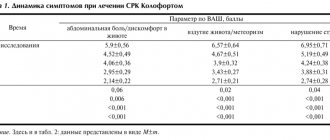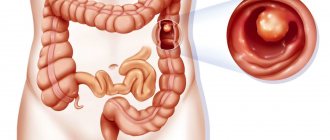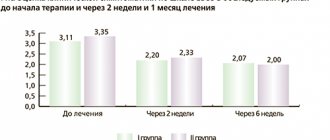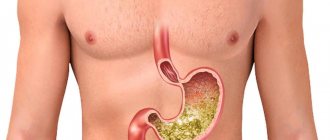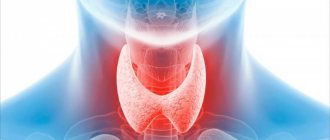Sucralose - what is it?
There is an opinion that artificial sweeteners (for example, Splenda sweetener), unlike natural sugar, are a safe alternative for anyone who suffers from diabetes and excess weight. However, there are serious risks associated with sucralose, which is part of sweeteners. As more detailed research is carried out, scientists are discovering more and more side effects of this substance.
Sucralose is one of the most commonly used artificial sweeteners in the world, added to foods and drinks to reduce calories. Although it is promoted as a dietary product, scientists are concerned about the side effects and dangers it may pose.
Instead of replacing all the sugar in your house with sweetener in hopes of reducing your calorie intake, look to healthier alternatives that add not only natural sweetness but also a dose of antioxidants, vitamins, minerals and fiber.
What is sucralose?
Sucralose is a chlorinated derivative of sucrose. This means it contains chlorine, and it comes from sugar.
The production process of sucralose occurs in several stages, during which the three hydrogen-oxygen groups of sugar are replaced with chlorine atoms. This substitution enhances the sweetness of sucralose.
Sucralose was originally discovered during the development of a new insecticidal compound and was not intended for human consumption.
However, it was later introduced to the masses as a “natural sugar substitute” without the public even realizing its toxicity.
In 1998, the US Food and Drug Administration (FDA) approved sucralose for use in 15 food and beverage categories, including baked goods, frozen dairy desserts, chewing gum, beverages, and sugar substitutes. Later, in 1999, the FDA expanded this list to allow sucralose to be used as a sweetener in all categories of foods and beverages.
Should I take inulin?
If you decide to get the most out of your diet, want to improve your body's health and care about the health of your intestines, then you should definitely take inulin. The only obstacle to taking it may be an individual allergic reaction. No further contraindications have been identified. If your diet is already fairly balanced and you do not want to change anything by adding certain foods to it, the best option would be to use inulin in the form of a dietary supplement.
Additive
Myprotein's inulin dissolves quickly in any liquid and has a neutral taste, making it ideal for everyday use. Think for yourself, you just need to dilute it with water and drink it. This useful supplement will do its job itself.
Facts about Splenda
Splenda is the most common sucralose product on the market today. It is the most popular sweetener in the United States.
This is likely due to the fact that Splenda is approximately 600 times sweeter than sugar. Here are some facts about the brand:
- Splenda is a synthetic sugar that the body cannot recognize.
- Sucralose makes up only 5%. The other 95% comes from maltodextrin and corn-based dextrose, a type of sugar.
- Splenda is used as a sweetener in cooking and is added to thousands of “calorie-free” foods.
- In fact, Splenda has 3.36 calories per gram due to its dextrose and malotextrin content.
Data suggests that the popularity of products with sucralose is much higher than any other artificial sweeteners.
Why is sucralose so popular? It is easily soluble in ethanol, methanol and water.
This means it can be used in fat- and water-based products, including alcoholic beverages.
Other artificial sweeteners, such as aspartame and sodium saccharin, do not dissolve as easily. For this reason, their range of applications is not so wide.
Reception features
- If you buy any drug containing insulin, you need to remember its high concentration. Initially, you should consume up to 3 g of inulin daily. The period with this dosage should be at least one and a half weeks. Then, if necessary and in agreement with the doctor, it is allowed to increase the amount of the product.
- It is believed that to maintain good health, the inulin norm is 10-30 g. But such indicators should be reached gradually to eliminate stress on the body. It is important to wash down the product with plenty of water, this will normalize metabolism.
- Inulin powders and tablets are taken in courses, the duration of which is determined by the manufacturer. The break between individual doses should be at least a month.
Side effects and dangers
May cause diabetes
A study published in the journal Diabetes Care suggests that consuming sucralose increases the risk of developing diabetes. According to this study, daily consumption of diet soda increases the risk of metabolic syndrome by 36% and type 2 diabetes by 67%.
This means that sucralose is among the causative agents of diabetes. Thus, it should be avoided by those who are at risk, as this substance can lead to serious negative consequences.
Scientists first noticed a similar trend in studies involving volunteers. Seventeen insulin-sensitive obese volunteers completed an oral glucose tolerance test after taking sucralose or water.
In addition to the fact that after taking the sweetener, insulin sensitivity decreased by 23%, which prevented the absorption of glucose into cells.
A more recent 2021 study published in the journal Cell Metabolism found that consuming sucralose along with carbohydrates leads to rapid disruption of glucose metabolism and therefore the regulation of glucose metabolic control between the brain and the gut.
Increases the risk of irritable bowel syndrome and Crohn's disease
Several years ago, Xin Kin, MD, of New Jersey Medical School, USA, discovered that sucralose consumption contributed to symptoms of IBS, ulcerative colitis and Crohn's disease. Dr. Keane made this discovery while studying a dramatic spike in IBS cases in Alberta, Canada, over a 20-year period. The incidence increased by 643%.
The statistics prompted Dr. Keene to begin her research. And what did he discover?
Sucralose has proven to be much more detrimental to beneficial gut bacteria than other artificial sweeteners, such as saccharin. The fact is that from 65% to 95% of sucralose is excreted unchanged in the feces. In 1991, Canada became the first country in the world to approve the use of sucralose as an artificial sweetener. In other words, there is a direct relationship between the amount of sucralose consumed and an increase in the incidence of inflammatory bowel disease.
A recent study that appeared in the journal Inflammatory Bowel Diseases found that the use of artificial sweeteners such as Splenda doubles the risk of developing Crohn's disease and may impair gut antimicrobial activity in patients suffering from Crohn's disease and other pro-inflammatory conditions. .
In some cases, sucralose may cause bloating as it is associated with a number of serious pro-inflammatory conditions that affect the functioning of the digestive system. It can also worsen inflammation and, in some cases, cause symptoms of IBS.
Associated with leaky gut
Since our body cannot digest sucralose, it passes through the gastrointestinal tract unchanged, damaging the intestinal walls. This can lead to leaky gut syndrome.
A number of studies have confirmed the harmful effects of sucralose on the intestines. Thus, the Journal of Toxicology and Environmental Health published an animal study conducted by Duke University Medical Center, USA, which stated that Splenda not only significantly reduces the number of beneficial bacteria in the intestines, but also increases stool pH. This indicates a decrease in the amount of nutrients that the body absorbs.
When heated, can form toxic and carcinogenic compounds
A study published in the Journal of Toxicology and Environmental Health found that when exposed to high temperatures, sucralose can produce dangerous chloropropanols, a possibly toxic class of compounds. Sucralose is used primarily in baking, and research suggests that the stability of this artificial sweetener decreases as temperature and pH increase.
When heated, not only does sucralose decompose, but also the formation of chloropropanols, a group of pollutants that includes genotoxic, carcinogenic and tumor-forming compounds.
In a study published in the journal Food Chemistry, scientists concluded that "caution should be exercised when using sucralose as a sweetener in baked goods containing glycerol and lipids."
It is worth noting that further research is required on the effect of sucralose on cancer development. However, given that the sweetener is most often used in foods that need to be cooked, the results may be disappointing.
Associated with weight gain
Do you think sucralose in your coffee will help you lose weight? It turns out that epidemiological studies in volunteers and laboratory studies on animals have found a relationship between the use of artificial sweeteners and weight gain.
Moreover, sweeteners may increase the risk of metabolic syndrome, type 2 diabetes, hypertension and cardiovascular disease. These studies did not specifically evaluate the effect of sucralose on weight gain, but other studies have also found no connection between sucralose and weight loss.
In an 18-month experiment published in the New England Journal of Medicine, 641 children (477 completed the study) were randomly assigned to groups. One of them received 250 ml of a sweet drink containing no calories every day, the second received a drink with sugar containing 104 calories.
The sugar-free drink contained 34 mg of sucralose and 12 mg of acesulfame K. By the end of the experiment, the sugar-sweetened drink group consumed 46,627 more calories.
However, overall weight gain was only 1 kg more compared to the group that drank sugar-free drinks. Scientists cannot explain such a slight difference.
Another study of adolescents found no significant decline in recruitment rates two years after families were offered sweetened drinks instead of sugar-sweetened ones.
Does this mean that sucralose promotes weight gain? Well, we know that in most cases it does nothing to help you lose weight. And for people who use a sweetener in baking, cooking, or drinks to track calorie intake, sucralose is not an effective weight loss method.
Side effects from sucralose and products containing Splenda have been reported, including headaches and allergic reactions. In addition, a recent study found that sucralose consumption negatively affects gut health and even causes metabolic syndrome.
If you are considering using sweeteners to lose weight, keep in mind that research has not proven their effectiveness. Instead, look to natural, lower-calorie sweeteners such as raw honey and stevia
Contraindications for use
You should combine inulin with medications with caution; you should definitely consult a specialist about this. By exhibiting the properties of a sorbent, polyfructosan can slow down or reduce the absorption of drugs. So, for example, at least 2-3 hours should pass between taking inulin and antibiotic.
The polysaccharide may promote gas formation in the intestines by stimulating the growth of intestinal microflora, which produces gases. This should be taken into account by people with increased sensitivity of the intestines to stretching in order to avoid discomfort.
Products and Use
Sucralose, or "Splenda", is used in many foods and drinks to make them "healthier". Sometimes, when choosing a product in a store, we don’t even suspect that it contains sucralose.
It can even be in toothpaste, cough drops or vitamins.
Before purchasing, read the composition of the product. Sometimes products that say “sugar-free,” “light,” or “0 calories” contain sucralose. Don't trust these labels because they hide artificial sweeteners.
Sucralose is often found in foods such as:
- carbonated drinks
- mineral water
- diet iced tea
- juice
- “sugar-free” sauces, dressings and syrups
- chewing gum
- cocoa drinks "no added sugar" or "no fat"
- some protein powders, bars and shakes
- sugar-free baked goods
- ice cream labeled “diet” or “sugar-free”
- popcorn
- "light" yoghurts
- sugar-free candies
- "low calorie" chocolate
- mint lozenges and lollipops
- toothpaste
Is she safe?
Not really. Sucralose can cause many problems: metabolic syndrome, digestive problems and weight gain. It may not have the best effect on your body.
Side effects caused by consuming sucralose include:
- changes in glucose and insulin levels
- increased risk of digestive problems
- changes in gut health and damage to the gastrointestinal tract
- death of probiotics
- may influence the development of certain types of cancer
- formation of toxic components when heated
- possible weight gain
Description of pharmacological action
Inulin is a fructooligosaccharide (FOS) obtained from chicory roots and other plants. In terms of its chemical structure, inulin is a polymer consisting of 30-36 D-fructose residues, its molecular weight is 5000-6000. It has a sweet taste, dissolves well in hot water, and can serve as a sugar substitute. In the stomach, inulin is easily hydrolyzed into fructose and fructooligosaccharides. Fructose is absorbed in the small intestine and serves as a source of energy for cells. It is important that the conversion of fructose into its metabolites does not require the participation of insulin, which is important for those suffering from diabetes. Inulin has an effect on the body: directly. Being a sorbent, inulin adsorbs various exo- and endotoxicants (heavy metals, carcinogenic substances, heavy metals, microorganism toxins, radionuclides) and removes them from the body, helping to cleanse not only the gastrointestinal tract (enteral detoxification), but also the entire body (systemic detoxification) ); indirectly, through the restoration of normal intestinal microflora. Inulin is absorbed and hydrolyzed entirely by intestinal microflora, mainly bifidobacteria. Biologically active substances (volatile fatty acids, vitamins, amino acids, etc.) formed in the process of microbial metabolism are used to produce energy and metabolize the intestines and the body as a whole. By promoting the proliferation of beneficial microflora, inulin enhances colonization resistance (i.e., prevents the proliferation of pathogenic microorganisms) and the detoxification functions of microflora, as well as its ability to support all types of metabolism in the body, especially carbohydrate and lipid metabolism, and all functions of the gastrointestinal tract (motor, secretory , absorption, excretory, endocrine, immune).
Sucralose, stevia and aspartame
Sucralose
Sucralose is an artificial sweetener used in “sugar-free” products. It is presented as a calorie-free sweetener that will help you lose weight. However, research suggests that this is not the case.
Sucralose is present in many foods, for example:
- bakery
- yogurt
- ice cream
- candies
- diet sodas
- mineral water
- protein bars
Bone Broth for Gut and Skin Health
Although the FDA has approved sucralose for use in food and beverages, including children's products, it may cause some bowel problems. Research suggests it is associated with leaky gut syndrome, IBS and Crohn's disease.
This sweetener can even lead to the development of diabetes, although it is often used in “sugar-free” products recommended for diabetic diets.
Sucralose and stevia
Stevia is an edible herbaceous plant that has been familiar to humans for over 1,500 years. Unlike sucralose and aspartame, it is a natural sweetener.
Stevia extract is said to be nearly 200 times sweeter than sugar. It can be used as an alternative to sugar in coffee or smoothies, and it does not cause dangerous side effects like most artificial sweeteners.
In fact, stevia has anti-cancer, anti-diabetic properties, normalizes cholesterol levels and promotes weight loss.
One illustrative study compares the effects of stevia, sugar, and sweeteners on food consumption, food safety, and changes in glucose/insulin levels. The study, published in the journal Appetite, included 19 healthy, lean volunteers and 12 overweight volunteers between the ages of 18 and 50. They consumed stevia, sucrose (table sugar) or aspartame before lunch and dinner.
After consuming stevia, participants did not feel hungry or overeat, unlike the group consuming sucrose. Moreover, the scientists reported that "stevia significantly reduced postmeal glucose levels, which was not the case with sugar and aspartame."
In other words, stevia helps normalize blood sugar levels and reduce the risk of developing diabetes, while drinks with sugar and sweeteners consumed before, during or after meals sharply increase sugar levels.
Sucralose and aspartame
Aspartame is an artificial sweetener often sold under the brands Equal and NutraSweet. It is present in products such as:
- diet sodas
- refreshing sugar-free lollipops
- sugar free corn flakes
- flavored water
- meal replacements
- sports drinks
Companies using aspartame claim its safety, but 92% of independent studies indicate side effects. The most dangerous include worsening (or developing) diabetes, an increased risk of heart disease, possible brain disorders, mood swings, weight gain and possible development of cancer.
Like sucralose, aspartame is FDA approved for use in foods and beverages. In fact, it is present in a huge number of products, including even some medications.
Both sweeteners have dangerous side effects and should be avoided whenever possible. Instead, choose healthier natural alternatives such as stevia.
Alternative
If you want to add more sweetness to your dish, it is not necessary to use regular sugar or a sweetener. There are a number of natural ways to sweeten a dish without the risk of unwanted consequences.
Here are just a few of them:
- Stevia. Stevia is a natural sweetener that is obtained from a plant in the Asteraceae family. This “sweet plant” has been used for thousands of years. Stevia is one of the best alternatives for diabetics. It's great for baking, but don't forget that this plant is almost 200 times sweeter than sugar, so remember to use moderation.
- Raw honey Raw honey is rich in enzymes, antioxidants, vitamins and minerals. One tablespoon of this honey contains about 64 calories. Its glycemic index is lower than that of banana. Raw honey is not suitable for cooking, but can be added to yogurt, salad, cereal or spread on toast for extra sweetness.
- Maple syrup. Maple syrup contains 24 different types of antioxidants. It is a rich source of manganese, calcium, potassium and zinc. Unlike sucralose, maple syrup is heat stable and can be used in cookies, pies, pancakes, and frostings. Choose 100-proof grade B or C organic maple syrup.
- Coconut sugar. Coconut sugar is obtained from the dried sap of the coconut palm. It contains small amounts of vitamins and minerals. Coconut sugar also contains short-chain fatty acids, polyphenols, antioxidants and fiber. It can be used in any dishes instead of regular sugar.
- Molasses. Black molasses is made from raw cane sugar. Raw sugar is boiled until it turns into a thick, sweet syrup. Unlike regular table sugar, black molasses is very nutritious. It has been proven to contain more phenolic compounds and have higher antioxidant activity than refined sugar, rapeseed honey and dates. It can be combined with coconut sugar.
- What is sucralose and why is it dangerous? Sucralose is a chlorinated derivative of sucrose that is used as a calorie-free sugar substitute. Research shows it may be hazardous to health.
- Today, the most popular product in the world containing sucralose is the sweetener Splenda. This product is approximately 600 times sweeter than sugar.
- In addition to being a sweetener, sucralose is used in food and beverage products, including diet sodas, iced tea, ice cream, popsicles, yogurts, baked goods, chewing gum, candy, and protein bars.
- A recent study concluded that consuming sucralose has a number of side effects: it can lead to the development of diabetes
- increases the risk of IBS and Crohn's disease
- may cause leaky gut
- produces toxic and carcinogenic compounds when heated
- may promote weight gain
You can make an appointment with an oncologist on our website.
